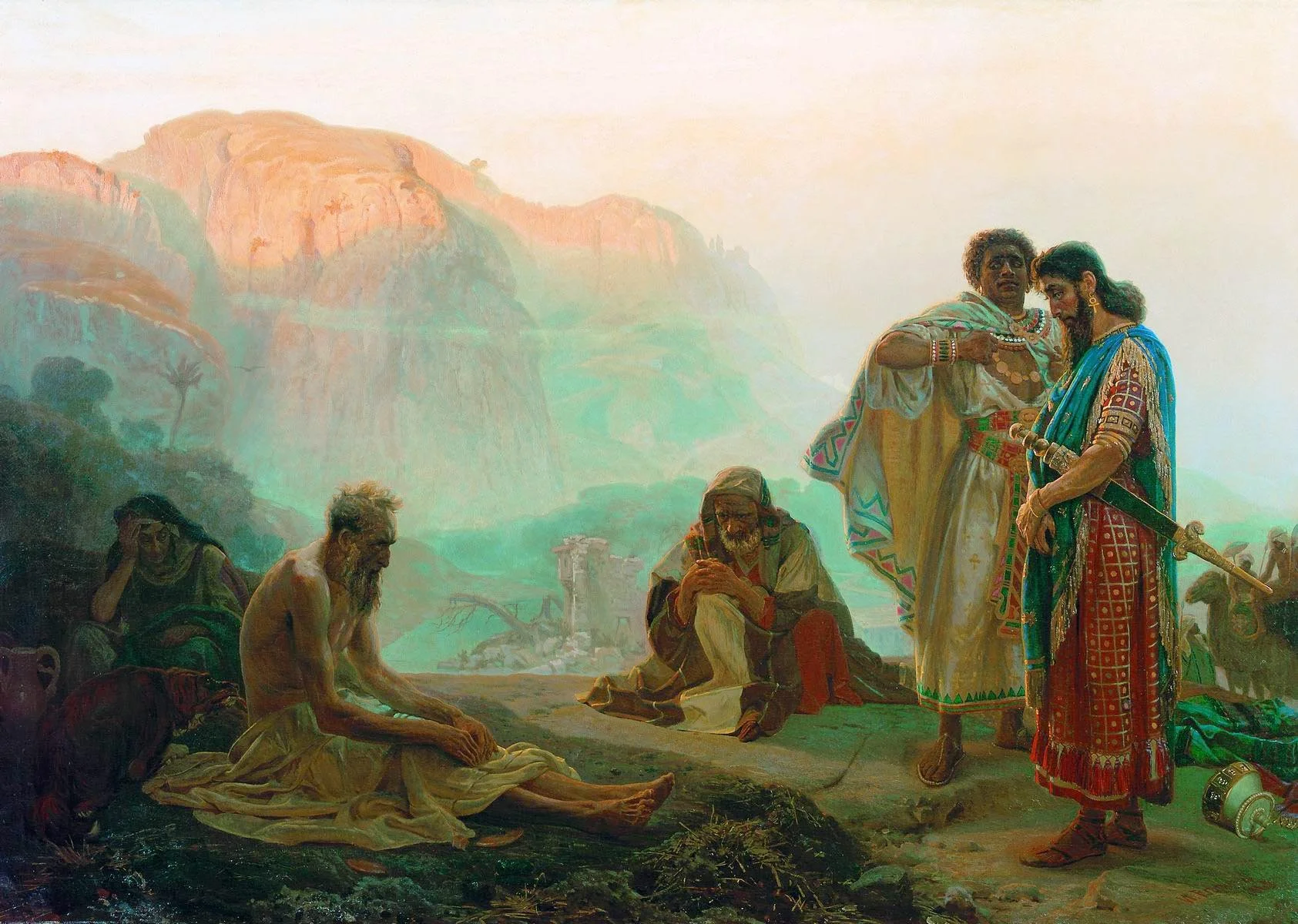They kept going like Job; people who faced devastation but endured
Job and his friends by Ilya Repin, 1869.
I sit here reading about Franklin Pierce, our fourteenth president, entering the White House after the tragic death of his young son. Before he ever took office, his family was devastated by grief, and I cannot imagine what it must have been like to bear the burden of national leadership with such fresh wounds. Unfortunately, his presidency ended up a failure because he couldn’t go on.
As I read about him, my mind wanders to the Book of Job.
Job’s story has always unsettled me. He loses everything, children, livelihood, health, and still, in the midst of anguish, he gropes toward God with honesty and raw lament.
Job never glosses over the pain. He does not pretend it is not there. He argues, he weeps, he even accuses. And yet, somehow, he endures.
When I think of Job, I think of others across history who have walked through devastation and somehow carried on.
I think of Julian of Norwich, who lived through the Black Death in the fourteenth century, enclosed in her cell and suffering grave illness herself. Out of this darkness, she received her visions and wrote words that still astonish me with their defiant hope: All shall be well, and all shall be well, and all manner of thing shall be well.
I think of Sojourner Truth, whom I regard as my favorite saint, born into slavery in the late eighteenth century, who suffered cruel treatment, the pain of being separated from her children, and the daily degradation of being considered less than human. She escaped and became not only a fierce abolitionist but also a bold preacher of women’s equality and God’s justice. She carried scars in her body and in her heart, yet her voice rose with prophetic clarity: Ain’t I a Woman?
I think of Harriet Tubman, who in the nineteenth century knew slavery’s lash, the trauma of family torn apart, and the constant threat of capture and death. She could have chosen safety after her own escape, but she returned again and again to lead others into freedom. Tubman’s perseverance, like Job’s, was born in suffering, and it turned her into a liberator.
I think of Viktor Frankl, who lived through the twentieth century’s darkest abyss in Auschwitz. He lost his entire family in the Holocaust and endured brutality that stripped away everything except his final freedom, the ability to choose his attitude. Out of this came his conviction that life is never without meaning, even in suffering.
His book Man’s Search for Meaning was the very first assigned reading in my Philosophy 101 course at Loyola University Chicago. I remember being struck that my professors began our study of philosophy not with abstract questions, but with a man who survived hell by insisting that even in suffering there is purpose.
I think of Elie Wiesel, who also survived the Holocaust and bore the grief of losing his parents and sister. He could have remained silent, but instead he dedicated his life to memory and testimony.
His book Night was also required reading for me in college, and I will never forget how his words, spare and unflinching, forced me to face the reality of evil and the persistence of faith and doubt. Wiesel’s voice taught me that remembering is itself a form of resistance.
These lives remind me that devastation is not the end of the story. They did not persevere because they were spared suffering, but precisely because they endured it and wrestled with it.
As I sit here reflecting, I realize that Job is not just a figure of ancient scripture. He lives again in Julian’s quiet visions, in Sojourner’s prophetic fire, in Tubman’s courage, in Frankl’s wisdom, and in Wiesel’s testimony.
And maybe he lives in me too, in all of us, when we face losses that threaten to undo us but somehow continue, one day at a time, toward meaning, toward freedom, toward God.

